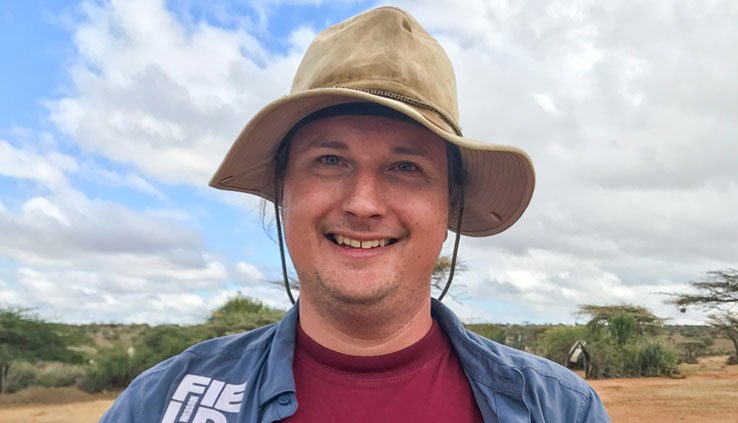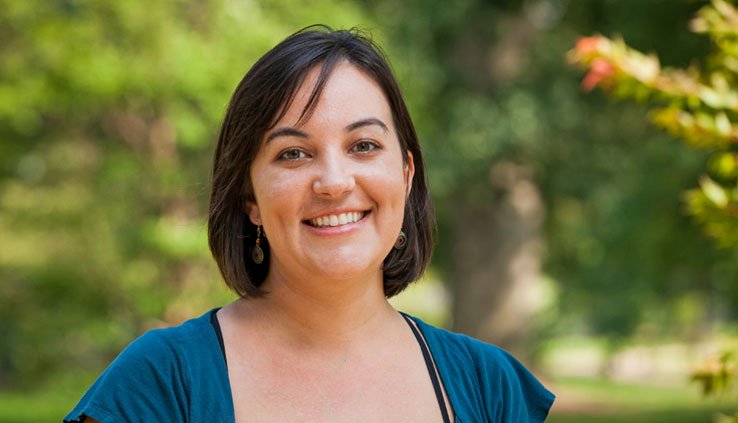Meet the 2022 Biota Award Recipients
Early-career researchers based in the Chicago region seek to restore, protect and conserve biodiversity locally and around the world.
Chicago is a densely populated city, surrounded by diverse and rare ecosystems, including remnant prairie, wetlands, and one of the largest bodies of freshwater. While threats to biodiversity in our region are vast, the potential solutions are just as expansive. Researchers in Chicago are uniquely positioned to understand how humans and nature can thrive.
Walder Foundation promotes the long-term sustainability of the natural environment by addressing socio-environmental challenges such as climate, water, food, and health. Through the Biota Awards, the Foundation aims to explore new solutions to restore and preserve our ecosystems.
2022 Biota Awardees
Rebecca (Becky) Barak, Ph.D
Rebecca (Becky) Barak, Ph.D.
Chicago Botanic Garden and Northwestern University
Becky is a conservation scientist and seed bank curator at Chicago Botanic Garden, and an adjunct professor at Northwestern University in the Plant Biology and Conservation program.
She studies seed biology and biodiversity in tallgrass prairies, and decision-making for restoration, particularly seed mix design. Recently, Becky has started working with collaborators to apply these biodiversity questions to studying lawn alternative plantings. The students in her lab study a variety of topics related to conservation and restoration in the Chicago area. Becky is a co-founder of Plant Love Stories a project that aims to collect and share stories about the plants that impact our lives.
PROJECT SUMMARY
The Grass can be Greener: Exploring Lawn Alternatives for Biodiversity Support, Climate Change Resilience, and Infrastructure Improvements
Lawns are everywhere, and while they are green in color, they could be much “greener” environmentally. Lawn maintenance (e.g., mowing, herbicides), reduces biodiversity and contributes to climate change. While some sports and recreation activities require turfgrass lawns, countless acres currently maintained as lawns do not need to be. Lawn alternatives – short, hardy, native plantings – may provide improvements over lawns in ecosystem functions such as plant and pollinator habitat, climate change mitigation, and stormwater retention. This project will plant and study lawn alternative plots in publicly-accessible green spaces, explore establishment options, and share information to encourage planting alternatives where appropriate.
Noé U. de la Sancha, Ph.D.
Noé U. de la Sancha, Ph.D.
Chicago State University
Noé is a classically trained mammalogist, primarily focusing in field ecology. He is interested in questions dealing with the effects of anthropogenic habitat disturbance on patterns of biodiversity, and the health of the population in these habitats.
Noé’s interests range from landscape ecology to biogeography. He incorporates statistical modeling, geographic information systems (GIS), morphometrics, and phylogenetics to field and museum data, with the aim to improve our understanding of various dimensions of biodiversity primarily in the tropics.
PROJECT SUMMARY
Impacts of Rapid Habitat Change: Mammalian Diversity and Its Response to Deforestation in a Global Biodiversity Hotspot
Habitat loss and fragmentation are associated with stress, immunosuppression and disease in wildlife, with direct impacts on populations. The proposed work aims to contribute to the overall understanding of the synergistic effects of human-driven habitat changes on biodiversity by improving the understanding of ecological health via a One Health approach, by studying the synergy between fragmentation, stress, biodiversity dynamics, and disease ecology. The proposed interdisciplinary, mechanistic research project simultaneously combines parasitology and other pathogens, stress hormone physiology, population genetics, biodiversity and landscape ecology in forest remnants of the Atlantic Forest of eastern Paraguay.
Adam W. Ferguson, Ph.D.
Adam W. Ferguson, Ph.D.
Field Museum of Natural History
Adam is an evolutionary ecologist interested in the natural history, conservation, and diseases of small carnivores and other neglected small mammals.
He joined the Field Museum in 2017 as the Negaunee Collections Manager of Mammals in the Gantz Family Collection Center, after living in Kenya for a 2.5-year post-doc studying genets and mongooses.
Adam holds a Ph.D. in biology from Texas Tech University where he studied skunk evolution and ecology. His interest in mammals started at an early age and was nurtured by hundreds of adventures with his father across the amazing natural landscapes of Texas. He has had the privilege of working with mammals in the wilds of Angola, Botswana, Ecuador, Djibouti, Guatemala, Mexico, and across the United States.
PROJECT SUMMARY
Small Mammal and Pathogen Diversity in South Side Parks in Chicago: Implications for Human Health and Well-being
Urban green spaces are renowned for their benefits to human health and well-being. Such spaces tend to support a diverse assemblage of small mammals, including deer mice, shrews, and voles. With these small mammals come associated parasites and pathogens, which in Illinois include a suite of zoonotic diseases of health concern (e.g., Lyme disease, raccoon roundworm, and spotted fever). The project will support a collaborative team of scientists, students, and natural resource managers studying these small mammals and their associated pathogens in multiple urban green spaces on Chicago’s South Side. Results will be shared with surrounding communities to mitigate concerns and encourage support for local conservation and restoration efforts.
www.fieldmuseum.org/about/staff/profile/2381
Meghan Midgley, Ph.D.
Meghan Midgley, Ph.D.
The Morton Arboretum
Meghan is a soil ecologist at The Morton Arboretum in Lisle, Illinois. She studies how interactions among plants, microbes, and soil influence ecosystem responses to environmental changes, including prescribed fire.
Meghan seeks to build bridges between research and natural resources management by using scientific insights into soil biology to design and enhance effective ecosystem management strategies.
Meghan earned a B.S. in environmental systems from the University of California - San Diego. She holds a master’s degree in environmental science, and a Ph.D. in ecology, evolution, and behavior from Indiana University.
PROJECT SUMMARY
The Consequences of Burn Pile Scars for Oak Ecosystem Biodiversity
To restore oak savannas, ecosystem stewards and managers cut invasive brush and thin understory and midstory trees, resulting in woody debris called brush piles. Brush pile burning has emerged as the top strategy for dealing with this debris. Approximately 5,000 brush piles are built and burned annually throughout the Chicago region. However, the ecological effects of “burn scars,” which may include long-term changes in fungal and plant communities, are virtually unexamined in the Midwest. This award will enable a team of scientists, managers, and stewards to determine the impacts of brush pile burns on soil and plant biodiversity and design post-burn strategies for reducing the effects of brush pile burns.
Sara Ruane, Ph.D.
Sara Ruane, Ph.D.
Field Museum of Natural History
Sara leads the Ruane Lab as the Field Museum’s Assistant Curator of Herpetology. She seeks to simultaneously inform reptile and amphibian systematics while also answering broad, contemporary questions in evolutionary biology.
Recent research has focused on Malagasy snakes and understanding what promotes diversification in these snakes, examinations of hybridization, species limits, and speciation for American milksnakes, and examining undescribed diversity in poorly known snakes of New Guinea. While Sara's interests in herpetology are broad, her lab focuses primarily on snakes, especially with respect to systematics, phylogenetics, and phylogeography.
PROJECT SUMMARY
Understanding Chicagoland’s Changing Conservation Landscape: Resurveys for Reptiles and Amphibians of Will County, Illinois
Together with conservation ecologist Michelle Thompson (Field Museum), this project will resurvey Chicagoland Forest Preserves for reptile and amphibian biodiversity. Resurveys are powerful to assess the survival and decline of species in response to concerns such as climate change and provide historical records for contemporary and future work. They will determine the status of species by conducting surveys over three years, include students from local colleges, and present results to the Forest Preserves Management for consideration in conservation plans. This will include outreach on urban conservation, natural history, and herpetofauna; specimens and genetic samples will inform biodiversity research for Illinois and the global scientific community.
IN THE NEWS
June 8, 2022
The Biota Awards program was featured in the Chicago Innovators segment of WBEZ’s Reset, hosted by Sasha-Ann Simons. Listen online:
Chicago Innovators: The Biota Awards fund biodiversity research in Illinois
Get more stories like this delivered to your inbox.
Sign up with your email address to receive news and updates.
















